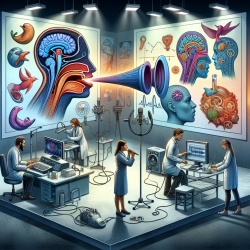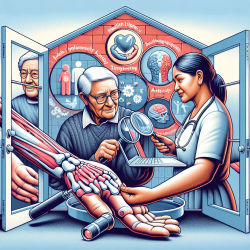Introduction
The research article titled "Body image impact on quality of life and adolescents’ binge eating: the indirect role of body image coping strategies" provides valuable insights into how body image perceptions influence binge eating behaviors in adolescents. This study, conducted by Bianchi et al., highlights the importance of understanding body image's multidimensional impact on adolescents' quality of life and its indirect effects on binge eating through coping strategies.
Key Findings
The study involved 715 adolescents aged 15–21 years from Italian schools. The researchers employed a multiple mediation model to explore the relationship between body image impact on quality of life and binge eating symptoms. Key findings include:
- A positive perceived impact of body image on quality of life negatively predicts binge eating symptoms.
- Three body image coping strategies—positive rational acceptance, appearance fixing, and avoidance—mediate this relationship.
- Positive rational acceptance reduces binge eating by promoting a healthier body image perception.
- Appearance fixing increases binge eating by focusing on modifying perceived flaws.
- Avoidance reduces binge eating by minimizing awareness of negative body image.
Implications for Practitioners
For practitioners working with adolescents, these findings underscore the importance of addressing body image perceptions and coping strategies in interventions. Here are some actionable steps:
- Promote Positive Rational Acceptance: Encourage adolescents to develop self-care and rational self-talk strategies to foster a healthier body image perception.
- Address Maladaptive Strategies: Identify and mitigate appearance-fixing behaviors that can exacerbate binge eating symptoms.
- Reduce Avoidance: Help adolescents confront negative body image perceptions in a supportive environment to prevent avoidance behaviors.
Encouraging Further Research
While this study provides significant insights, it also opens avenues for further research. Practitioners are encouraged to explore the long-term effects of body image coping strategies on various mental health outcomes. Additionally, understanding cultural differences in body image perceptions can enhance intervention strategies tailored to diverse populations.
Conclusion
The study by Bianchi et al. offers a comprehensive understanding of the complex relationship between body image, coping strategies, and binge eating in adolescents. By integrating these insights into practice, practitioners can better support adolescents in developing healthier body image perceptions and coping mechanisms.
To read the original research paper, please follow this link: Body image impact on quality of life and adolescents’ binge eating: the indirect role of body image coping strategies.










